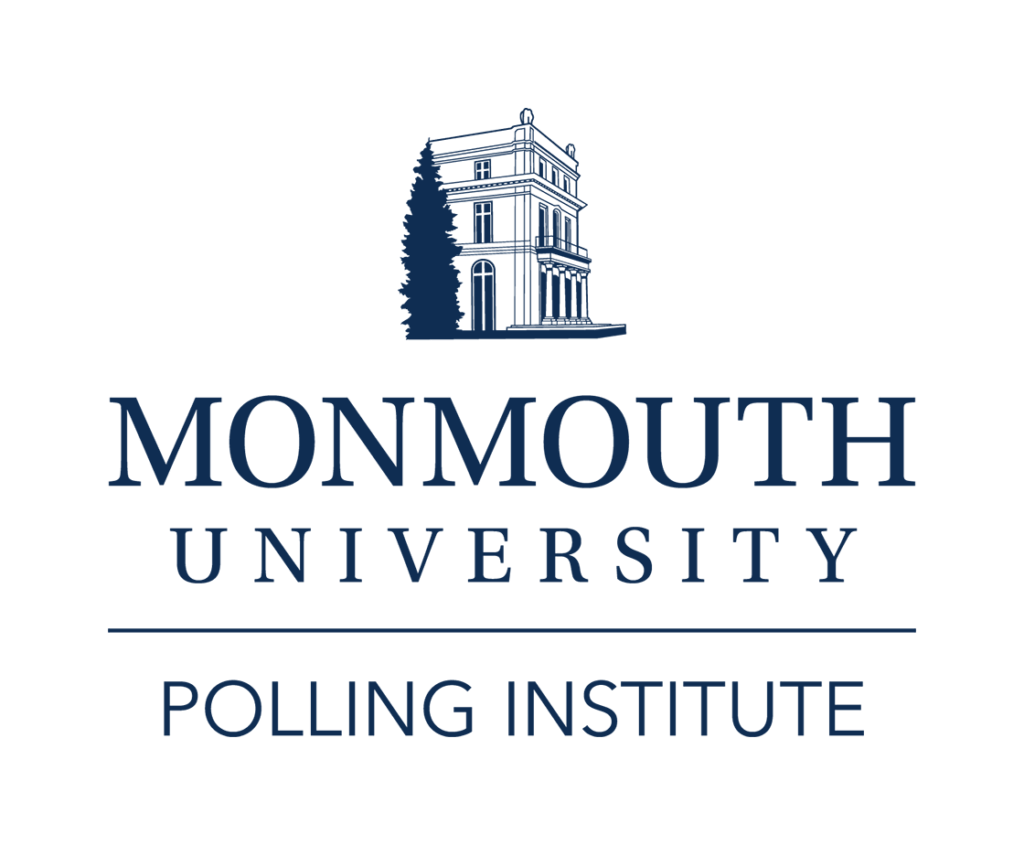In what has been a topsy-turvy campaign, Mitt Romney currently holds a 7 point lead over Newt Gingrich among likely Republican primary voters in Florida according to the Monmouth University Poll . The former Massachusetts governor registers 39% support while the former House Speaker has 32%. Former Pennsylvania Senator Rick Santorum (11%) and Texas Congressman Ron Paul (8%) are well behind the top two contenders.
There are decided age and gender gaps in the voting intentions of Sunshine State Republicans. Men give a slight edge to Gingrich over Romney (38% to 33%), while women prefer Romney over Gingrich by a sizable margin (45% to 26%). Voters age 65 and older prefer Romney, by a 48% to 33% margin. The contest is closer among those age 45 to 64 (36% Romney to 31% Gingrich) and age 18 to 44 (33% Gingrich to 29% Romney).
Gingrich (40%) does well among those who call themselves very conservative, leading both Romney (34%) and Santorum (15%) among a voting bloc that comprises nearly 4-in-10 likely voters. But Romney does better among the bulk of voters who see themselves as either somewhat conservative (44% to 34% for Gingrich) or moderate to liberal (44% to just 19% for Gingrich).
Among those who support the Tea Party movement, support is split at 38% for each of the two leading candidates. However, Gingrich does better among those who say they strongly support the Tea Party with 49% to 24% for Romney. It’s the mirror image among those who support the Tea Party only somewhat – 51% for Romney to 27% for Gingrich. Romney also bests Gingrich among voters who either oppose or have no opinion about the Tea Party (42% to 18%).
As in South Carolina, Gingrich has a healthy advantage among evangelical voters – 41% to 28% for Romney. Santorum trails with 17% among this group. Gingrich’s problem is that evangelical Christians represent less than 4-in-10 likely Florida voters, compared to a sizeable majority in South Carolina.
“Governor Romney appears to be ahead for the moment, but we have seen voter preferences turn on a dime in this contest. Debate performances and ad buys in Florida will determine whether he can solidify his lead or whether Speaker Gingrich can pull out another stunner,” said Patrick Murray, director of the non-partisan Monmouth University Polling Institute in West Long Branch, New Jersey.
Sunshine State Republicans were also asked their opinion of having home state Senator Marco Rubio as the party’s pick for Vice President. Nearly 2-in-3 (64%) think this would be a good idea. Just 17% say it would be a bad idea and 19% have no opinion. Both Romney voters (65%) and Gingrich voters (77%) say having Rubio in the number two slot would be a good idea.
The poll asked likely Florida GOP primary voters which factor is more important in their presidential candidate choice – someone who shares their values or someone who can defeat President Barack Obama. They are split between electability (50%) and values (48%). Romney leads Gingrich with both groups, but interestingly, more so among values voters (36% to 26%) than electability voters (42% to 38%). This is partly because Paul (15%) and Santorum (12%) eat more into Gingrich’s share of values voters.
Florida has one of the highest unemployment rates (9.9%) in the country. The Monmouth University Poll found more GOP voters here wanting the next president to place a higher priority on creating jobs (53%) over reducing the federal deficit (43%). This preference holds for both Romney voters (57% to 40%) and Gingrich voters (52% to 44%).
Florida primary voters intend to stay loyal to the GOP even if their preferred candidate does not win the nomination. Nearly 3-in-4 (74%) say they will definitely vote for the Republican in November and another 11% say they will probably support the GOP nominee. Just 7% say they will vote for another candidate, 1% will not vote at all, and 6% are not sure what they will do. Between 74% and 86% of Romney, Gingrich, and Santorum supporters say they will definitely support whoever takes the Republican nomination. Just 45% of Ron Paul voters say the same.
The Monmouth University Poll was conducted by telephone with 540 likely Florida Republican primary voters from January 24 to 25, 2012. This sample has a margin of error of ± 4.2 percent.
DATA TABLES
The questions referred to in this release are as follows:
(* Some columns may not add to 100% due to rounding.)
1. If the Republican primary election for President were today, would you vote for Newt Gingrich, Ron Paul, Mitt Romney, Rick Santorum, or some other candidate? [If undecided: At this moment, do you lean toward any of the candidates I just named?] [NAMES WERE ROTATED]
|
TOTAL | PARTY ID | IDEOLOGY | GENDER | AGE | EVANGELICAL |
TEA PARTY | |||||||||
|
Rep | Ind/ Dem | Very Consv | Somewhat Consv | Mod/ Lib | Male | Female | 18-44 | 45-64 | 65+ | Yes | No | Support |
Neutral/ | ||
| Newt Gingrich | 32% | 33% | 30% | 40% | 34% | 19% | 38% | 26% | 33% | 31% | 33% | 41% | 29% | 38% | 18% |
| Ron Paul | 8% | 5% | 19% | 4% | 7% | 14% | 10% | 7% | 10% | 10% | 5% | 5% | 9% | 6% | 14% |
| Mitt Romney | 39% | 41% | 31% | 34% | 44% | 44% | 33% | 45% | 29% | 36% | 48% | 28% | 46% | 38% | 42% |
| Rick Santorum | 11% | 11% | 10% | 15% | 10% | 7% | 10% | 11% | 9% | 11% | 11% | 17% | 8% | 13% | 5% |
| Other | 3% | 2% | 6% | 2% | 2% | 7% | 3% | 3% | 7% | 2% | 1% | 3% | 2% | 1% | 7% |
| Undecided | 7% | 8% | 3% | 5% | 4% | 9% | 6% | 8% | 12% | 9% | 2% | 6% | 5% | 4% | 15% |
2. Which is more important in your primary vote decision – voting for someone who shares your values OR voting for someone who can defeat Barack Obama? [OPTIONS WERE ROTATED]
|
TOTAL | PARTY ID | IDEOLOGY | GENDER | AGE | EVANGELICAL |
TEA PARTY | |||||||||
|
Rep | Ind/ Dem | Very Consv | Somewhat Consv | Mod/ Lib | Male | Female | 18-44 | 45-64 | 65+ | Yes | No | Support |
Neutral/ | ||
| Shares your values | 48% | 42% | 66% | 39% | 46% | 59% | 46% | 49% | 62% | 48% | 40% | 46% | 46% | 43% | 59% |
| Can defeat Obama | 50% | 55% | 30% | 59% | 52% | 38% | 50% | 50% | 33% | 51% | 58% | 53% | 51% | 54% | 38% |
| No opinion | 3% | 2% | 3% | 2% | 2% | 3% | 4% | 1% | 5% | 1% | 3% | 1% | 3% | 3% | 3% |
3. If your preferred candidate does not win the Republican nomination, how likely will you be to support the eventual nominee in November? Will you definitely vote for the Republican, probably vote for the Republican, will vote for another candidate, or will not vote?
|
TOTAL | PARTY ID | IDEOLOGY | GENDER | AGE | EVANGELICAL |
TEA PARTY | |||||||||
|
Rep | Ind/ Dem | Very Consv | Somewhat Consv | Mod/ Lib | Male | Female | 18-44 | 45-64 | 65+ | Yes | No | Support |
Neutral/ | ||
| Definitely | 74% | 81% | 49% | 92% | 76% | 46% | 72% | 76% | 60% | 73% | 83% | 78% | 76% | 85% | 46% |
| Probably | 11% | 10% | 15% | 3% | 13% | 18% | 10% | 13% | 21% | 10% | 8% | 11% | 10% | 8% | 19% |
| Another candidate | 7% | 3% | 22% | 1% | 4% | 23% | 10% | 5% | 10% | 9% | 5% | 4% | 8% | 2% | 21% |
| Will not vote | 1% | 1% | 3% | 0% | 2% | 2% | 2% | 0% | 2% | 1% | 1% | 1% | 2% | 0% | 3% |
| Not sure | 6% | 4% | 11% | 4% | 5% | 11% | 6% | 5% | 7% | 7% | 3% | 7% | 5% | 3% | 11% |
4. Do you think it would be a good idea or bad idea if the nominee chose Senator Marco Rubio as his vice presidential running mate?
|
TOTAL | PARTY ID | IDEOLOGY | GENDER | AGE | EVANGELICAL |
TEA PARTY | |||||||||
|
Rep | Ind/ Dem | Very Consv | Somewhat Consv | Mod/ Lib | Male | Female | 18-44 | 45-64 | 65+ | Yes | No | Support |
Neutral/ | ||
| Good idea | 64% | 66% | 55% | 78% | 66% | 38% | 63% | 64% | 57% | 64% | 67% | 71% | 62% | 73% | 40% |
| Bad idea | 17% | 13% | 29% | 11% | 14% | 34% | 21% | 13% | 14% | 19% | 16% | 14% | 19% | 10% | 33% |
| Not sure | 19% | 20% | 16% | 11% | 20% | 28% | 16% | 23% | 29% | 17% | 17% | 16% | 19% | 16% | 27% |
5. Which should be a higher priority for the next president – creating jobs OR reducing the budget deficit? [OPTIONS WERE ROTATED]
|
TOTAL | PARTY ID | IDEOLOGY | GENDER | AGE | EVANGELICAL |
TEA PARTY | |||||||||
|
Rep | Ind/ Dem | Very Consv | Somewhat Consv | Mod/ Lib | Male | Female | 18-44 | 45-64 | 65+ | Yes | No | Support |
Neutral/ | ||
| Creating jobs | 53% | 53% | 54% | 48% | 52% | 63% | 51% | 56% | 53% | 54% | 52% | 52% | 53% | 48% | 66% |
| Reducing deficit | 43% | 44% | 41% | 47% | 47% | 34% | 45% | 41% | 42% | 44% | 43% | 42% | 45% | 48% | 31% |
| Not sure | 4% | 3% | 5% | 5% | 2% | 4% | 4% | 3% | 5% | 2% | 5% | 6% | 2% | 4% | 2% |
6. What is your general opinion of the Tea Party movement –strongly support, somewhat support, somewhat oppose, strongly oppose, neutral or no opinion?
|
TOTAL | PARTY ID | IDEOLOGY | GENDER | AGE | EVANGELICAL |
TEA PARTY | |||||||||
|
Rep | Ind/ Dem | Very Consv | Somewhat Consv | Mod/ Lib | Male | Female | 18-44 | 45-64 | 65+ | Yes | No | Support |
Neutral/ | ||
| Strongly support | 36% | 36% | 34% | 60% | 26% | 16% | 42% | 30% | 21% | 42% | 37% | 42% | 34% | 50% | 0% |
| Somewhat support | 36% | 37% | 31% | 27% | 47% | 26% | 36% | 36% | 40% | 35% | 35% | 33% | 37% | 50% | 0% |
| Somewhat oppose | 7% | 5% | 12% | 1% | 4% | 23% | 7% | 6% | 10% | 7% | 5% | 4% | 8% | 0% | 24% |
| Strongly oppose | 4% | 3% | 10% | 2% | 3% | 11% | 5% | 4% | 7% | 4% | 3% | 4% | 4% | 0% | 16% |
| Neutral/no opinion | 17% | 18% | 12% | 10% | 20% | 24% | 11% | 23% | 21% | 12% | 19% | 17% | 17% | 0% | 60% |
The Monmouth University Poll was conducted by the Monmouth University Polling Institute in West Long Branch, New Jersey. The poll was conducted January 24-25, 2012 with a random sample of 540 likely Republican primary voters in Florida. The sample includes 407 voters who completed the survey via automated voice interviewing and 133 with a live interviewer, including 121 via cell phone. Telephone interviewing services were provided by Survey USA in Clifton, New Jersey. The sample was drawn from registered Republican voter lists obtained from Aristotle, Inc., screened for those who say they have already cast their ballots or are either “certain” or “likely” to vote in the Republican primary and weighted according to past voting history demographics.
For results based on the total sample, one can say with 95% confidence that the error attributable to sampling has a maximum margin of plus or minus 4.2 percentage points. Sampling error increases as the sample size decreases, so statements based on various population subgroups, such as separate figures reported by gender or party identification, are subject to more error than are statements based on the total sample. In addition to sampling error, one should bear in mind that question wording and practical difficulties in conducting surveys can introduce error or bias into the findings of opinion polls.
POLL DEMOGRAPHICS | |||||
Party (self-reported) | Gender | Age | Race | Evangelical Christian | |
| 78% Republican | 51% Male | 22% 18-44 | 86% White, non-Hispanic | 36% Yes | |
| 20% Independent | 49% Female | 39% 45-64 | 10% Cuban/Hispanic | 64% No | |
| 2% Democrat | 39% 65+ | 4% Other | |||
Click on pdf file link below for full methodology and results by key demographic groups.




